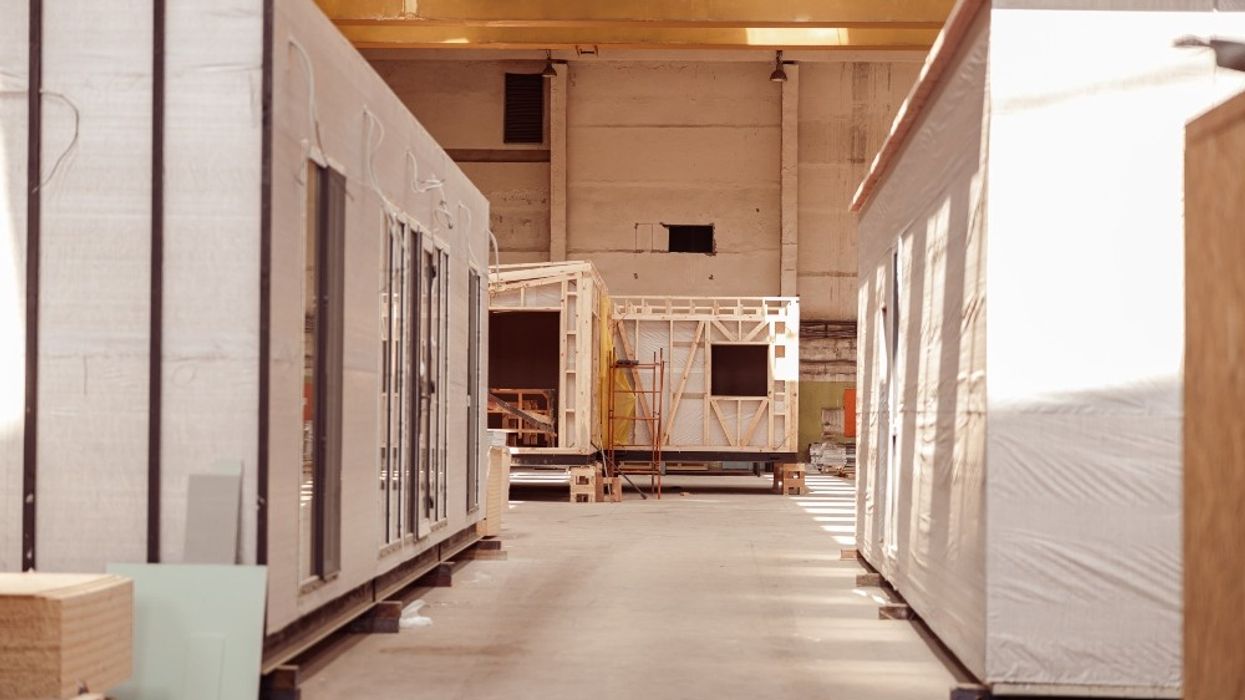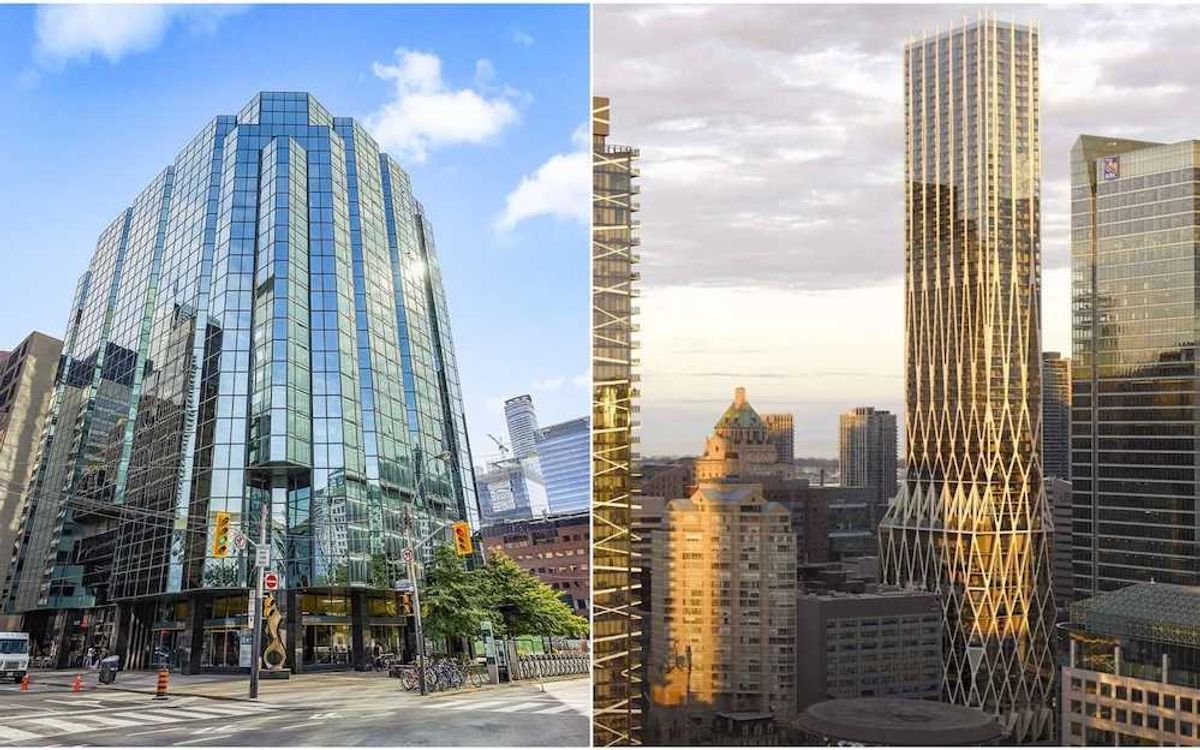In an effort to bring more rental housing to market and to do so faster, the Province of British Columbia is exploring the possibility of a program focused on prefabrication.
The program has not been officially announced, let alone created, but was discussed in a Metro Vancouver Regional Planning Committee meeting on Thursday, in the context of identifying interest from member municipalities.
The program was described by staff as "a project led by the Province to explore pre-approved building plans and off-site construction to streamline the delivery of rental housing."
"There is a significant and urgent need for rental housing in the Metro Vancouver region, and the Province as a whole," staff said in a report to the Committee. "In recent years, housing delivery (particularly affordable rental housing) has been challenged by unprecedented construction cost escalation, a result of multiple factors including rising interest rates and labour shortages. Exploring new technologies and methods for delivering rental housing such as off-site construction has the potential to drive housing supply, affordability, climate action, and construction sector innovation in the region."
Those various factors have resulted in many rental projects being delayed or reconceptualized, with some developers even moving on from their previously planned rental projects altogether.
Elevated interest rates have also played a significant role in the substantial drop-off in multi-family investment this year. According to a report published by commercial real estate brokerage Avison Young, BC recorded a total transaction value of $279.9M in the first half of this year, which was a fraction of the $410.6M recorded in H2 2022 and minuscule compared to the $1.5B recorded in H1 2022. Such low activity could be felt years from now when projects that would otherwise come online don't.
Making matters worse is that as all of this happening, the demand for rental housing is growing.
According to Metro Vancouver, the population of renters in the region increased by 13.2% between 2016 and 2021. Meanwhile, the supply of purpose-built rental units grew by just 5.6%.
"The population is growing at a faster rate than new housing supply is being delivered, exasperating access to housing, and housing affordability challenges in all communities within the Metro Vancouver region, and across the province," the report notes.
While the provincial government does not have much control over inflated construction costs or interest rates (despite Premier Eby trying to influence the Bank of Canada), what it can do is change the approaches to housing development, and taking advantage of the benefits of prefabrication is a strategy with potential.
The Benefits of Prefabrication
One of the biggest advantages of prefabrication is that construction timelines can be significantly reduced. Traditionally, developers have to acquire building permits before they can begin construction on their site, but with prefabrication, work can begin off-site before the permits are even obtained. Once the permits are in place, then it's primarily just a matter of assembling the prefabricated pieces and completing the project.
Prefabrication construction can also reduce the amount of waste created and the labour needed, compared to traditional on-site construction.
According to Metro Vancouver, the average rental project in BC takes about 22 months of construction, which is more than in most other provinces, and has been trending in the wrong direction in recent years.
"Off-site construction (including prefabrication, building component parts off-site, panelized construction, and modular construction), can reduce project delivery times, and can reduce costs by 30%," staff found.
To take full advantage of prefabrication, which Metro Vancouver estimates is currently only used by 5% of new construction projects, synergies and efficiencies can be maximized by standardizing processes and designs.
"Standardized guidelines and zoning regulations, including pre-approved reference plans, could be made available open source, and wouldn't need to go through additional design review," staff said, discussing the possibilities of the Province's program. "These pre-reviewed designs could be well-tailored to being realized by off-site construction, but could also be realized using traditional woodframe construction."
Staff say they recognize that every construction site is unique, but reducing customization could enable economies of scale and generate a sustained pipeline of projects, such as a consistent stream of six-storey rental buildings. They would all look the same, or similar, but "beggars can't be choosers," as the saying goes.
A Potential Incentive Program
According to Metro Vancouver staff, they have had some "initial conversations" with the Province and industry leaders that have voiced "preliminary interest" in facilitating a prefabrication program, whether it be through policies or investments. Metro Vancouver has indicated that it will advocate for policies to support this, such as financial grants or other incentives.
To see this through, the next step will be identifying a group of early adopters — municipalities and developers — that are willing to step up and serve as a proof of concept. Metro Vancouver and the Province will then work to establish a set of best practices — such as the aforementioned standardization — before developing formal policy guidelines. Once in place, the program could then be piloted by the chosen group.
"Governments can use their purchasing power to build scale for this type of industrial production, therefore growing the demand for a consistent pipeline of rental housing projects that could be supported by the off-site construction industry," Metro Vancouver said. "Furthermore, Metro Vancouver can support its member jurisdictions by providing best practices and research, and supporting the implementation of standard zones, and pre-approved plans and designs for rental housing that could in turn generate demand for off-site construction."
No estimated timeline has been provided, but Metro Vancouver will now begin reaching out to member municipalities to gauge interest.
In April 2022, the Province launched its Mass Timber Action Plan to increase the demand for mass timber buildings and construction, which would appear to serve as a good blueprint for this prefabrication program. That program was developed, in part, by the Ministry of Jobs, Economic Development, and Innovation, which was headed by Ravi Kahlon, who is now the Minister of Housing.




















